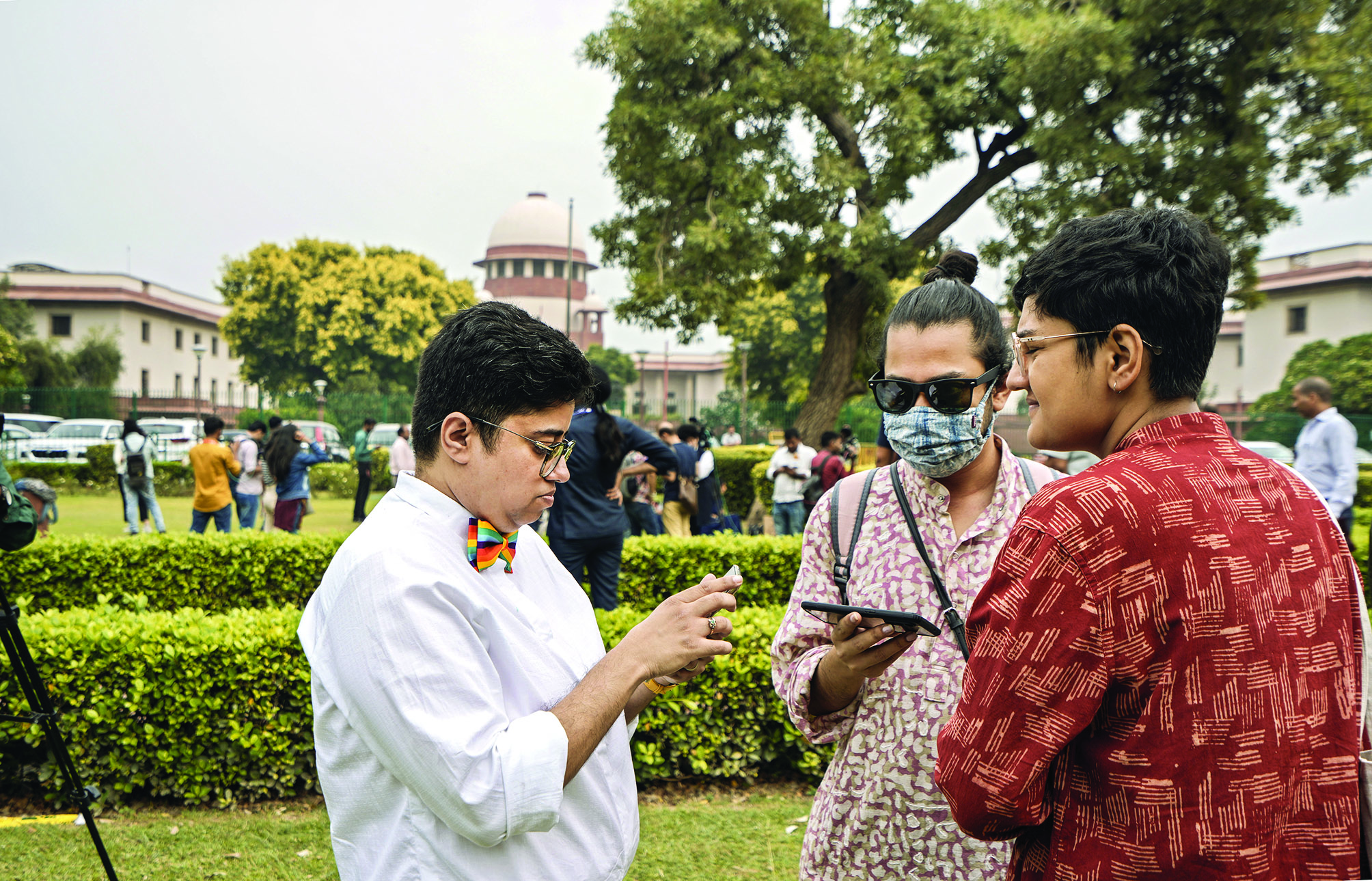CJI disagrees with Centre, says queerness not urban or elite

New Delhi: Disagreeing with the Centre’s subamission that the petitions seeking legal validation of same-sex marriage reflected an “urban elitist” view, Chief Justice of India D Y Chandrachud said on Tuesday queerness is not urban or elite, or restricted to upper classes and privileged communities.
The CJI made the observations while heading a five-judge constitution bench which unanimously refused to accord legal recognition to same-sex marriage under the Special Marriage Act. His remarks assume significance as the Centre had in an affidavit filed earlier termed these pleas as those that reflected an “urban elitist” view.
“Even the limited exploration of the literature on the subject makes it abundantly clear that homosexuality or queerness is not solely an urban concept nor is it restricted to the upper classes or privileged communities,” the CJI said while pronouncing the verdict. The CJI penned a separate verdict on the hugely contentious issue.
The bench also comprised Justices Sanjay Kishan Kaul, S Ravindra Bhat, Hima Kohli and P S Narasimha. Besides the CJI, Justices Kaul, Bhat and Narasimha penned separate verdicts. In his judgement, the CJI observed people may be queer regardless of whether they were from villages or cities.
He said the Centre had suggested that the court would be violating the doctrine of separation of powers if it determines the issue of validity of same-sex marriage in this case.
He said separation of power undoubtedly forms a part of the basic structure of the Constitution but the power of courts to conduct judicial review was also a basic feature of the Constitution.
He said the doctrine of separation of powers can’t stand in the way of the court in issuing directions or writ to enforce fundamental rights.
In a significant verdict, the five-judge constitution bench unanimously refused to accord legal recognition to same-sex marriage under the Special Marriage Act, ruling that it is within Parliament’s ambit to change the law for validating such union.



